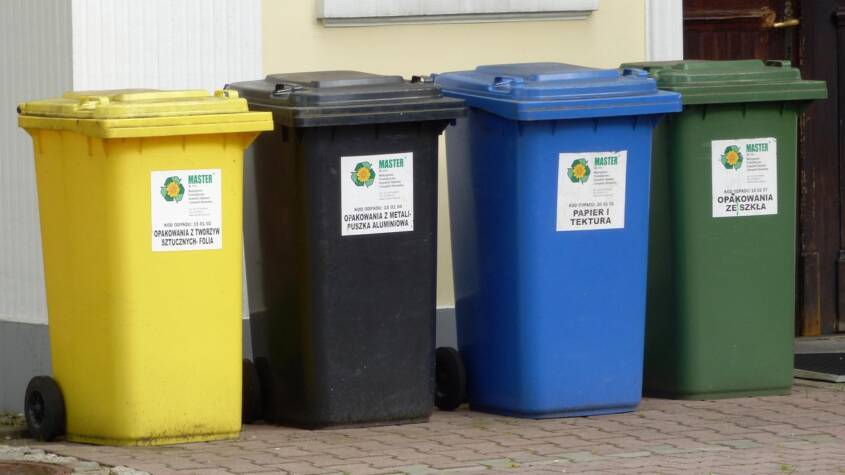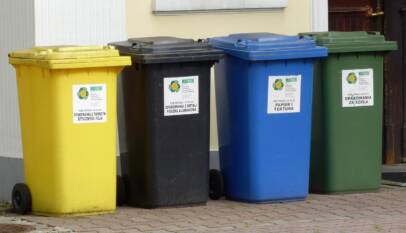Places to Drop Off Recycling: A Guide to Local Options and Best Practices
Recycling is an essential practice for reducing waste and protecting the environment. Many individuals seek effective places to drop off their recyclable materials, yet finding the right locations can sometimes be challenging. This article will provide specific suggestions for places to drop off recycling, ensuring that everyone can contribute to a greener planet.
Community centers and municipal facilities often serve as primary drop-off points for recyclables. Neighborhood programs and events may also facilitate recycling opportunities, offering residents a way to dispose of their items responsibly. By utilizing these resources, individuals can participate in sustainability efforts more effectively.
Local recycling programs may vary, so it is beneficial to check guidelines provided by the city or county. Knowing what materials are accepted and finding the nearest drop-off location can simplify the recycling process. Embracing these practices not only helps to reduce landfill waste but also fosters a sense of community involvement and environmental responsibility.
Understanding Recycling Drop-off Points
Recycling drop-off points serve as essential venues for community members to responsibly dispose of recyclable materials. Recognizing the types of materials accepted and the benefits of utilizing these locations enhances the recycling experience.
Types of Recyclable Materials
Recycling drop-off points typically accept a variety of materials. Commonly accepted items include:
- Plastics: Look for containers marked with recycling codes #1 (PETE) and #2 (HDPE).
- Paper: Clean paper, newspapers, and cardboard can be recycled.
- Metals: Aluminum cans, such as soda cans, and tin cans are often accepted.
- Glass: Containers like bottles and jars are recyclable, but must be clean and empty.
It is critical to check local guidelines since accepted materials may vary by location. Some drop-off sites may also have special bins for electronics or hazardous waste. Understanding what can be recycled at specific sites reduces contamination and improves recycling efficiency.
Benefits of Using Drop-off Locations
Utilizing recycling drop-off points offers several advantages. First, these sites promote community involvement by encouraging responsible waste management. They provide an accessible means for individuals to engage in sustainability efforts.
Secondly, drop-off locations help prevent recyclable materials from ending up in landfills. This reduces environmental impact and conserves resources. Many facilities operate under strict guidelines to ensure that items are processed appropriately.
Moreover, drop-off points often have extended hours, making it convenient for individuals to recycle at their convenience. This flexibility supports a culture of recycling, fostering long-term sustainability in the community.
Locating Your Nearest Recycling Facilities
Finding nearby recycling facilities is essential for effective waste management. Key sources include municipal drop-off sites, retail locations, and specialized centers for hazardous waste.
Municipal Drop-off Sites
Municipal drop-off sites are typically operated by local governments. They provide a convenient way for residents to recycle a variety of materials, including paper, plastics, and metals.
To locate these facilities, residents can visit their city or town’s official website. Many municipalities publish lists or maps of available drop-off locations. It’s important to check operating hours, as many sites may have specific drop-off days.
Residents should also be aware of what materials are accepted. Each municipality may have different guidelines, so verifying them ensures compliance and efficiency.
Retail and Commercial Recycling Points
Retail recycling points are often found in larger stores and supermarkets. These locations frequently offer bins for specific items like plastic bags, batteries, and electronics. Major retailers typically partner with recycling programs to facilitate this process.
To identify these points, consumers can check store websites or inquire with staff during their visits. Many stores display clear signage indicating accepted recyclables.
It is advisable to maintain a list of nearby locations for quick reference. This can help streamline the recycling process for all household items.
Specialized Facilities for Hazardous Waste
Hazardous waste requires special disposal methods to ensure safety and environmental protection. Specialized facilities exist to handle items like paints, chemicals, and batteries.
Local health departments can provide information on the nearest hazardous waste centers. Many communities hold regular collection events for residents to dispose of hazardous materials properly.
It’s critical for individuals to follow specific guidelines regarding the packaging and storage of hazardous items before dropping them off. Ensuring safe disposal helps protect both people and the environment.
British Virgin Islands Company Registry Explained: Key Facts and Procedures
The British Virgin Islands company registry is a centralized system that maintains detaile…













